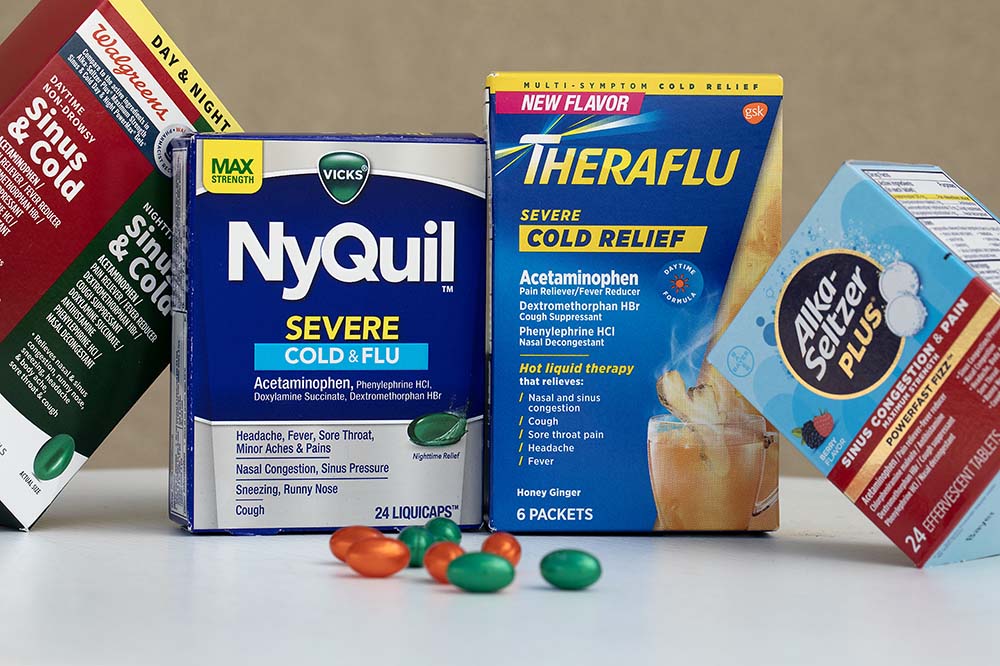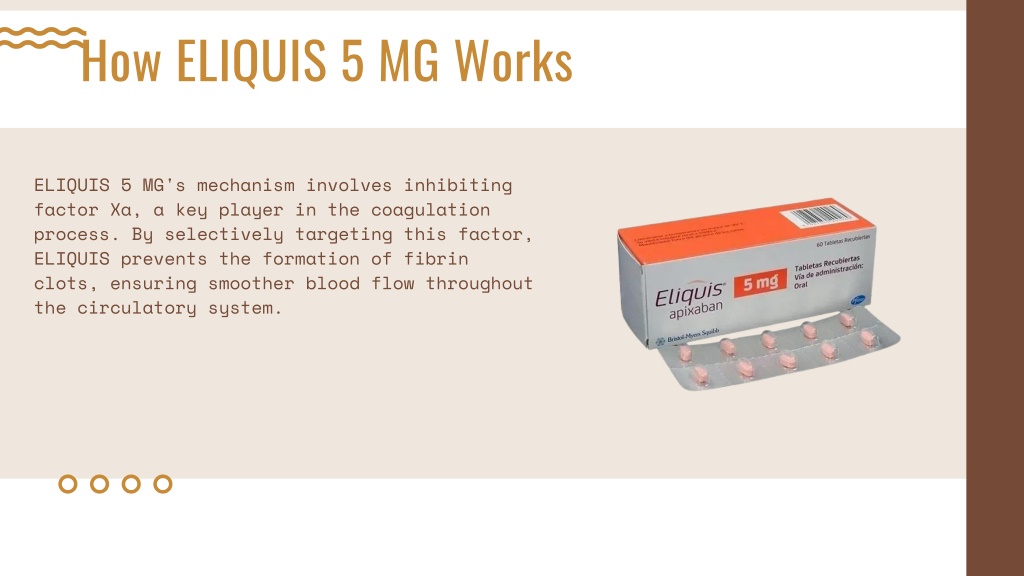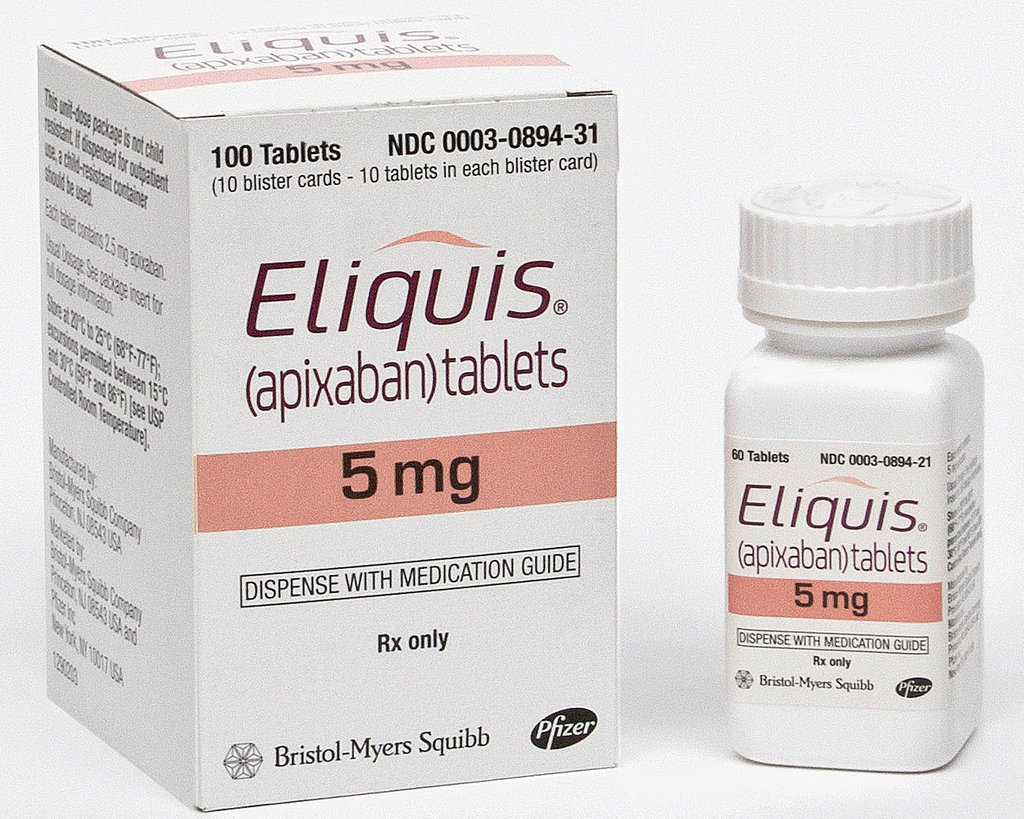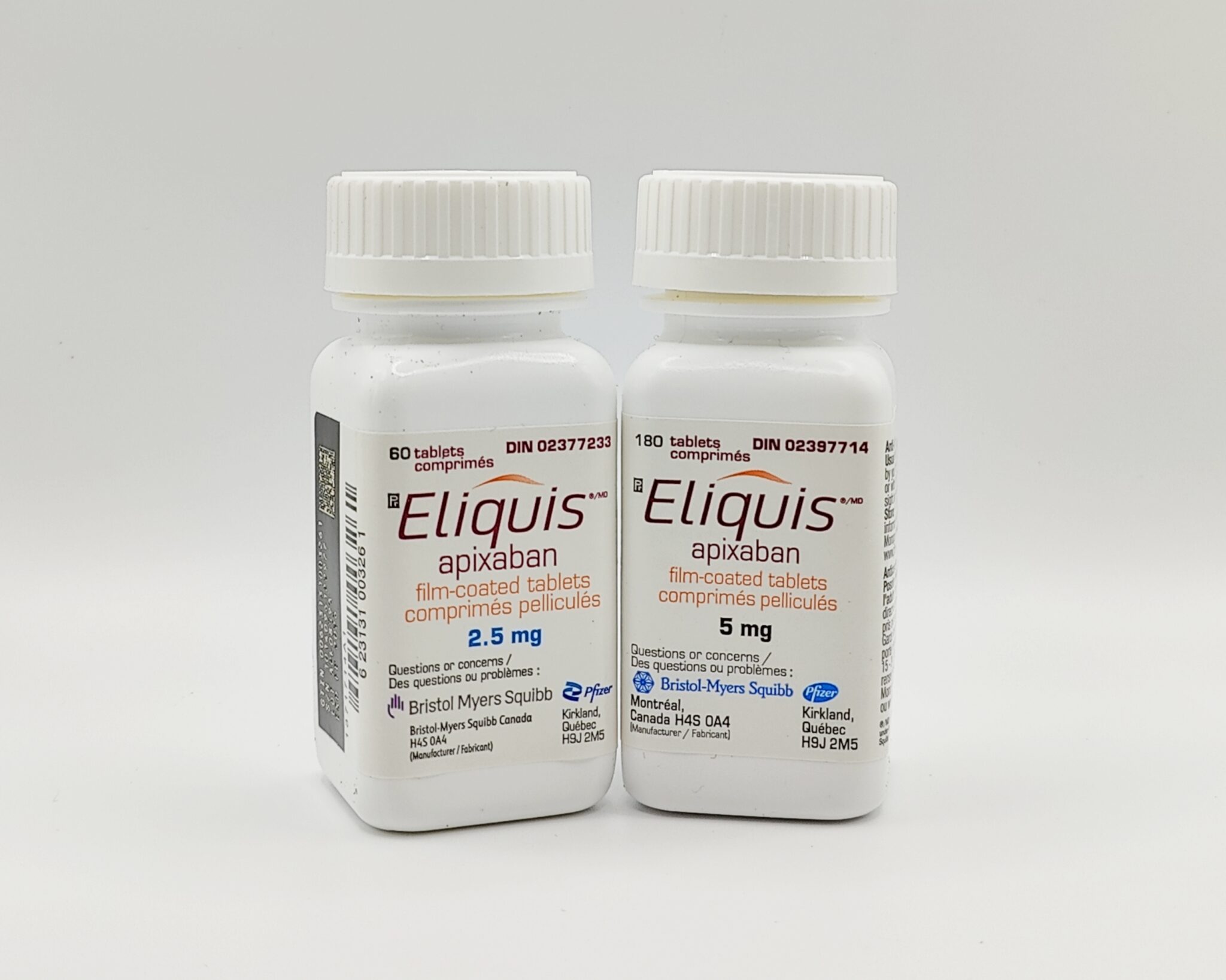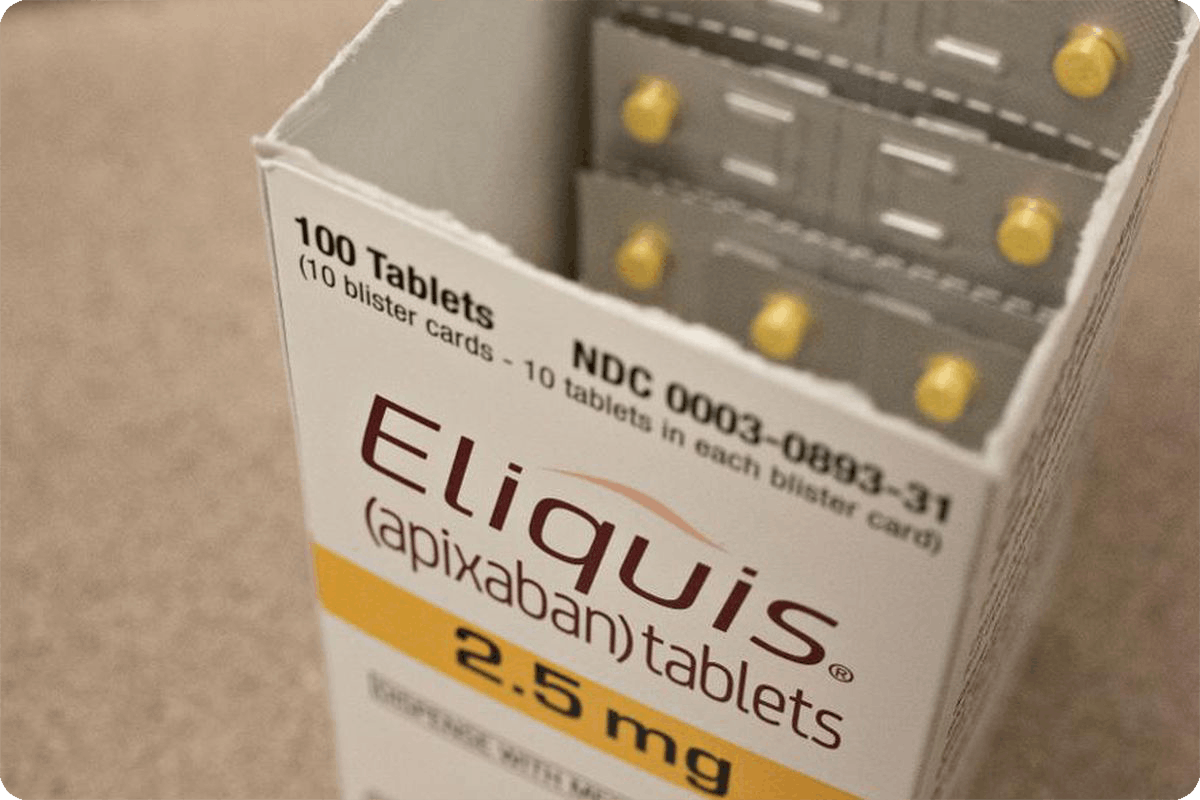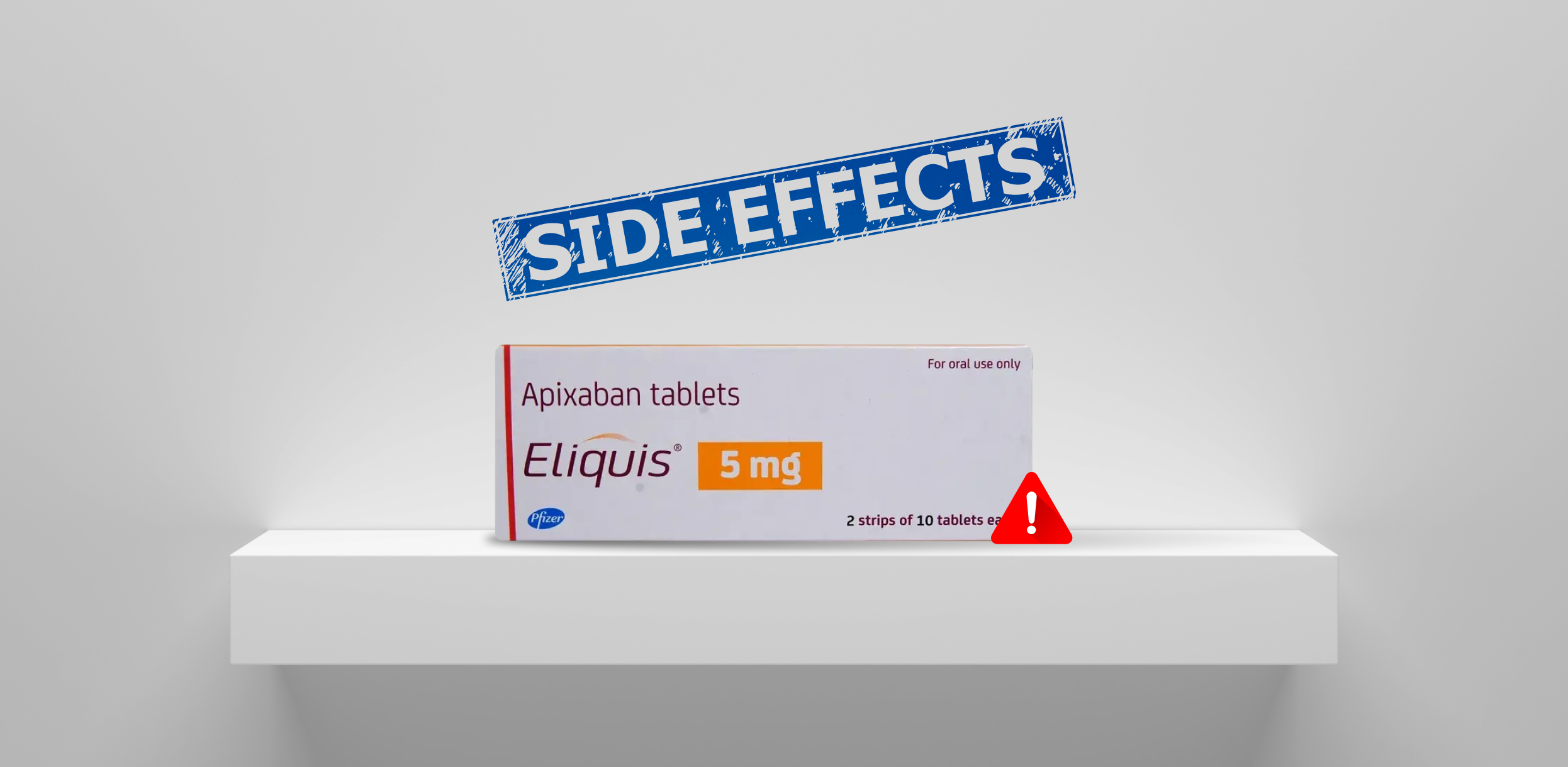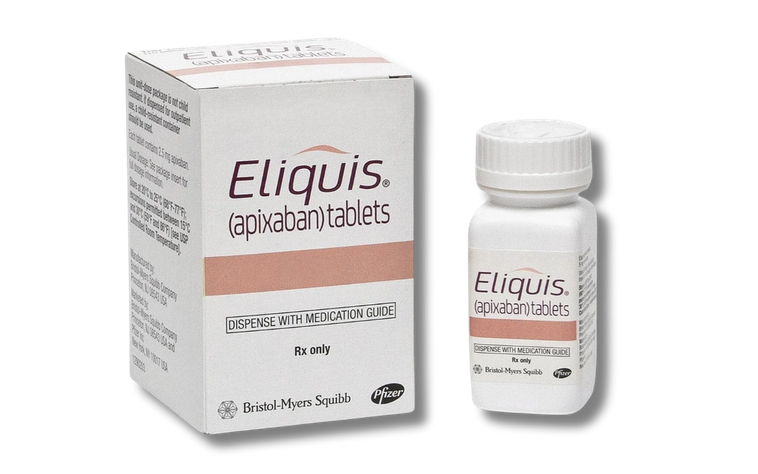What Cold Medicine Can I Take With Eliquis

Navigating over-the-counter medications when you're on a blood thinner like Eliquis (apixaban) can feel like walking a tightrope. The seemingly simple act of treating a cold or the flu requires careful consideration to avoid potentially dangerous drug interactions.
This article addresses a common concern: Which cold medicines are safe to take with Eliquis? Understanding the risks and potential interactions is crucial for patients to maintain their health without jeopardizing their anticoagulant therapy.
The Balancing Act: Eliquis and Cold Medications
Eliquis, a direct oral anticoagulant (DOAC), is prescribed to prevent blood clots in individuals with conditions like atrial fibrillation or deep vein thrombosis. It works by inhibiting a specific clotting factor, reducing the risk of stroke and other thromboembolic events.
However, certain medications, including some found in common cold remedies, can interfere with Eliquis's mechanism of action, increasing the risk of bleeding or, conversely, reducing its effectiveness.
Decongestants: Proceed with Caution
Decongestants like pseudoephedrine and phenylephrine, often found in cold and flu medications, can raise blood pressure. While not a direct interaction with Eliquis, elevated blood pressure can increase the risk of bleeding, especially in individuals taking anticoagulants.
Patients taking Eliquis should consult their doctor or pharmacist before using decongestants. Alternatives that don't raise blood pressure might be more suitable.
Pain Relievers and Fever Reducers: Acetaminophen is Generally Safe
For pain relief and fever reduction, acetaminophen (Tylenol) is generally considered safe to use with Eliquis when taken as directed. However, nonsteroidal anti-inflammatory drugs (NSAIDs) like ibuprofen (Advil, Motrin) and naproxen (Aleve) should be avoided.
NSAIDs can increase the risk of bleeding in the gastrointestinal tract, especially when combined with anticoagulants. If pain relief is needed beyond acetaminophen, consult a healthcare professional for safer alternatives.
Cough Suppressants and Expectorants: Limited Interactions
Cough suppressants like dextromethorphan and expectorants like guaifenesin generally have a low risk of interacting with Eliquis. However, it's still wise to check the complete list of ingredients in any cough syrup or cold medication to ensure there are no other potentially problematic substances.
Always read labels carefully and discuss any concerns with a pharmacist. Some combination medications contain ingredients that are not suitable for individuals on blood thinners.
The Role of Professional Advice
The best course of action is always to seek professional medical advice. Consulting with a doctor or pharmacist before taking any new medication, including over-the-counter cold remedies, is crucial for individuals on Eliquis.
These healthcare professionals can assess individual risk factors, review current medications, and provide personalized recommendations to ensure the safe and effective management of both the cold symptoms and the anticoagulant therapy.
"It's always better to be safe than sorry," says Dr. Anya Sharma, a hematologist at the University Hospital. "A quick consultation can prevent serious complications."
Herbal Remedies: A Potential Minefield
Many people turn to herbal remedies to alleviate cold symptoms. However, some herbal supplements, such as garlic, ginger, and ginkgo biloba, can also increase the risk of bleeding and should be avoided by individuals taking Eliquis.
It is essential to inform your doctor about any herbal supplements you are taking, as they can have significant interactions with your prescribed medications.
Practical Steps for Safe Cold Management
When you have a cold and are taking Eliquis, prioritize non-pharmacological methods of symptom relief, such as rest, hydration, and steam inhalation. These methods can often alleviate symptoms without the need for medication.
If medication is necessary, carefully read the labels of all over-the-counter products. Look for single-ingredient medications to minimize the risk of unwanted interactions.
Key Takeaways
1. Consult a healthcare professional: Always seek advice from your doctor or pharmacist before taking any new medication, including over-the-counter cold remedies, while on Eliquis.
2. Avoid NSAIDs: Steer clear of NSAIDs like ibuprofen and naproxen due to the increased risk of bleeding.
3. Be cautious with decongestants: Use decongestants sparingly and monitor your blood pressure. Consider alternatives if possible.
4. Read labels carefully: Pay close attention to the ingredients of all medications to avoid potentially harmful interactions.
Ultimately, managing a cold while on Eliquis requires a collaborative approach between the patient and their healthcare provider. By staying informed and seeking professional guidance, individuals can safely navigate cold symptoms without compromising their anticoagulant therapy.




